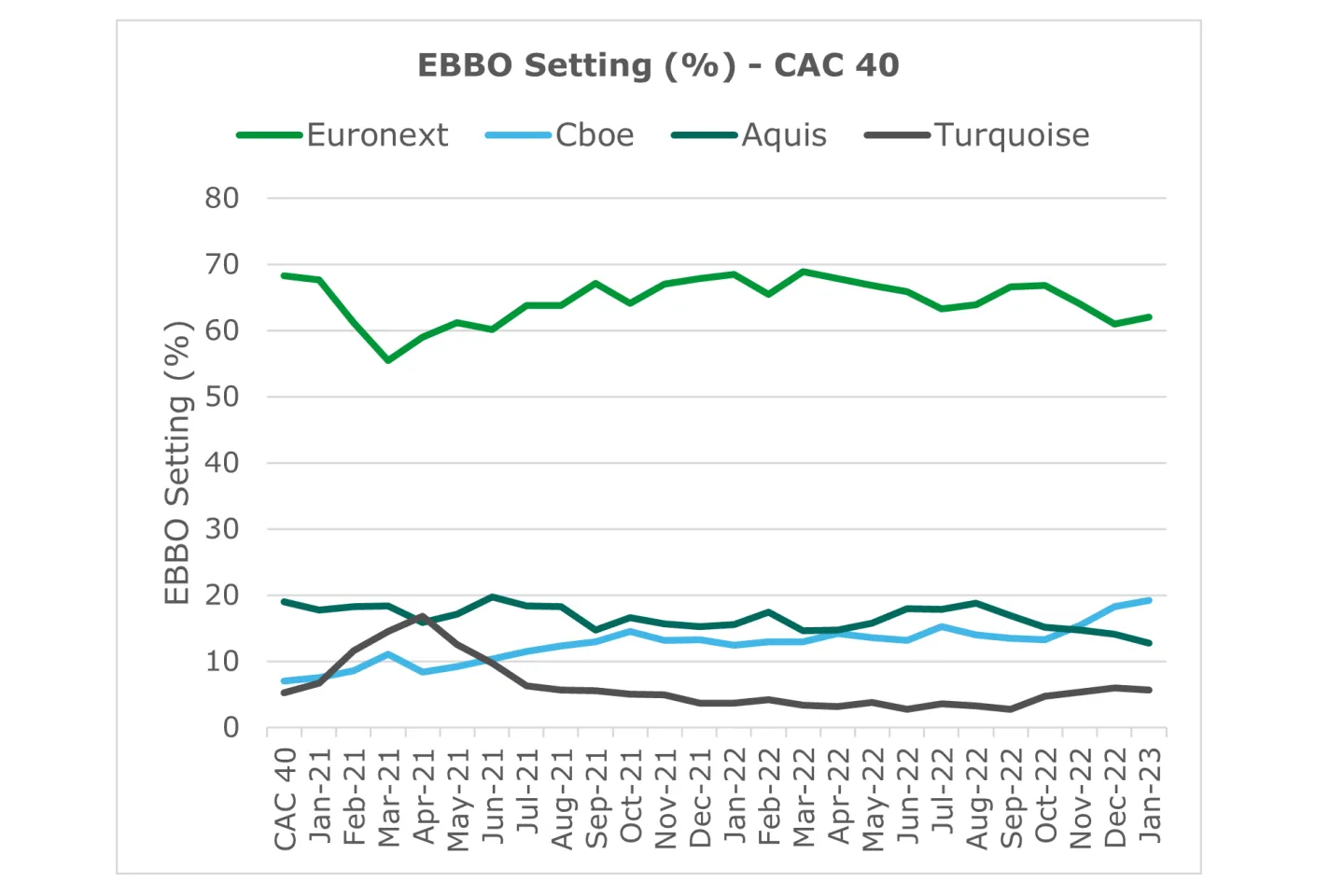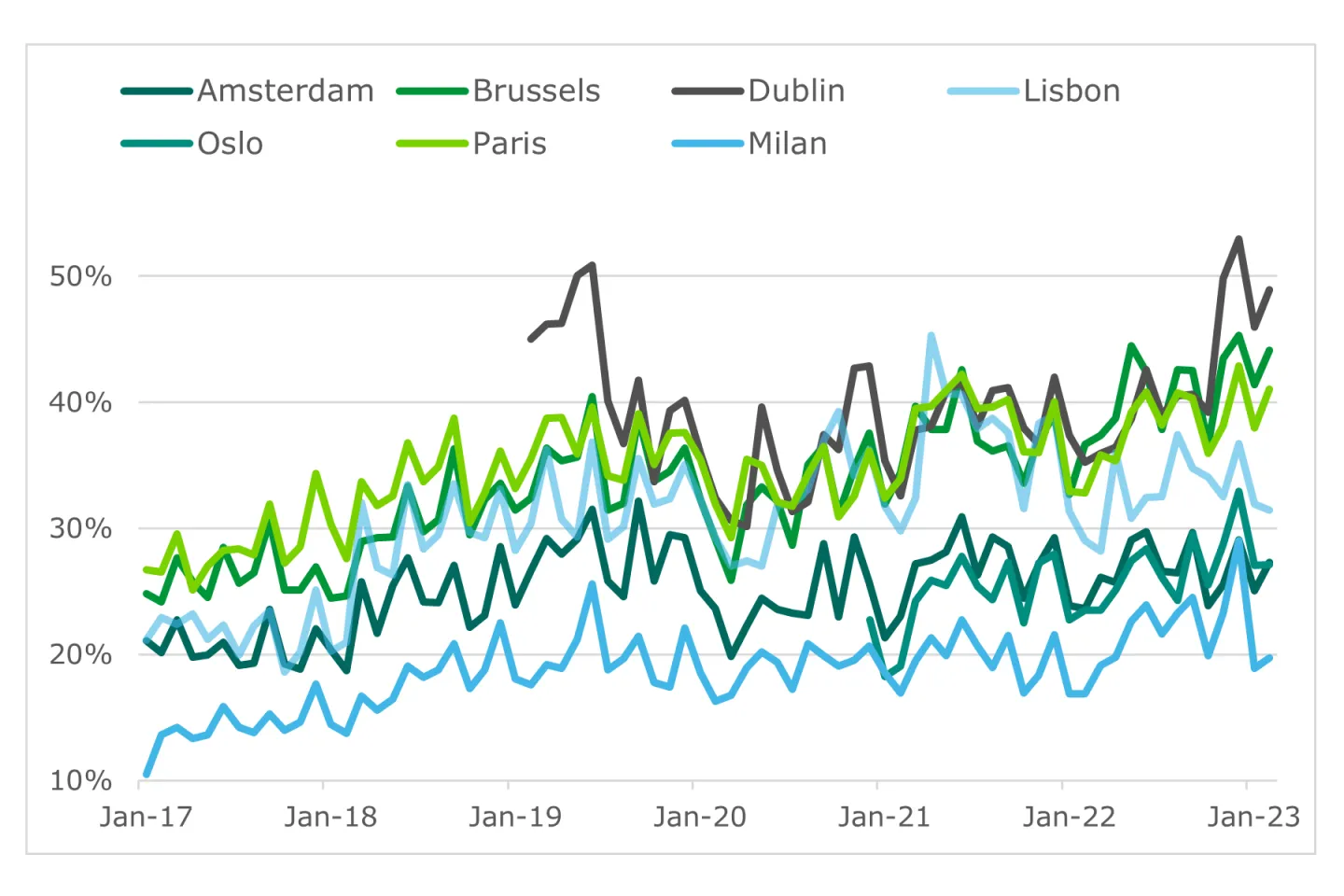How is Ferde contributing to the development of green cities and clean transportation networks?
Ferde AS is a regional toll collection operator, headquartered in Bergen, Norway. Ferde’s responsibility is to ensure efficient toll collection and cost-effective financing of infrastructure projects in the south and west part of Norway. Ferde is owned by the three counties where we operate, and has a state mandate to finance infrastructure projects that are approved by local municipalities and the Norwegian state. The projects are partially financed by fundings from toll collection and partly by the state.
Toll collection contributes to financing increased access to public transport solutions such as light rail, trams and buses, as well as efficient accessibility for bicycles and pedestrians. Toll collection is also used as an instrument for traffic regulation in the cities. Given our mandate, we are contributing to the development of green cities. The overarching objective is to ensure an efficient, accessible, safe and environmentally friendly transport system that covers society’s needs for transport and promotes regional development.
An increasing part of infrastructure projects financed by Ferde are related to city environment plans with focus on investments in bus lanes, bicycle lanes, trams and pedestrian pathways, which is where green financing can contribute most.
Ferde has carried out a sustainability mapping where our Green Finance Framework and procurement are the two significant areas where we can influence the most. In addition to being Eco-lighthouse certified, our governance systems are certified according to the ISO 9001 and ISO 14001 standards. Ferde is subjected to the requirements of the EU’s Transparency Act, which shall promote businesses’ fundamental respect for human rights and decent working conditions as part of social sustainability. Ferde established a framework for following up suppliers and carried out a risk assessment prior to the Act came into force. Our Code of Conduct is, together with the environmental policies, part of the steering documents for our sustainability framework.
Ferde’s updated framework is aligned with the EU Taxonomy: what are the main challenges when using this tool?
The green finance framework provides Ferde with the option of issuing green bonds and loans to finance public infrastructure projects with environmental benefits. It is the stated objective of the government’s policy to increase the accessibility and efficiency of low-carbon transport alternatives and to reduce dependency on personal car transportation.
As part of the EU Taxonomy Regulation, and in order to be considered sustainable and to comply with minimum social safeguard, an activity must substantially contribute to at least one of six environmental objectives without harming the other objectives (“Do No Significant Harm”). The DNSH criteria are developed to make sure that progress towards some objectives is not made at the expense of others and recognises the relationships between different environmental objectives.
As a toll collection company, Ferde does not participate in the decision-making process around which specific infrastructure projects that will be initiated in the region, and we have limited potential to influence the design and running of the projects. However, we are owned by the same counties that are in charge of executing the projects, and we are instrumental in ensuring efficient toll collection and beneficial terms of financing. As we do not take part in the actual construction of the projects, a challenge is therefore to identify the DNSH criteria. The assessment of the DNSH criteria has mainly been based on information from the counties and partners where we have identified relevant Green Projects. It is essential to have good and constructive dialogues with our main stakeholders.
A few years ago, Ferde was entirely financed through bank loans, now the company mostly taps in the bond market. What are the benefits?
Some of the benefits of being in the bond market are reduced financial costs and increased competition. We have also obtained a diversification of the investor base. By being in the bond market, Ferde has established itself as a significant actor in the financial market. This has resulted in a more flexible and solid access to financing. More and larger issues result in a reduced liquidity premium.
Ferde has various projects that are financed differently based on qualitative assessments for each individual project. Each of the infrastructure projects are unique and we consider them differently based on the assessments carried out. The choice of funding therefore depends on the nature of each individual project.
Can you tell us about your experience in issuing green bonds?
In 2019, Ferde published an inaugural Green Bond Framework, aligned with the ICMA Green bond Principles from 2018, and became the first regional toll company in Norway to issue a green bond. Since then, best practice has developed, the EU has increased its ambition levels within sustainable finance, and Ferde, as well as our owners, have taken steps to increase the focus on sustainability. In 2022 we renewed our Green Finance Framework. It has been established to mirror best practice, and to enable us to increase the share of green financing in the portfolio. The framework is aligned with the ICMA Green Bond Principles and the LMA Green Loan Principles from 2021.
The international capital market is increasingly conscious towards sustainability – and it is here to stay. Green loans give us access to further diversification of the investor base and increased interest from stakeholders. By achieving better conditions and a certain “greenium” by issuing green bonds, our gain is in total exceeding the costs and therefore strengthening Ferde as an issuer.
Ferde has a diversified portfolio that consists mostly of bonds, included green bonds, in addition to certificates and bank loans. This makes us more robust and flexible which is important in our goal to contribute towards a more efficient financing of infrastructure projects.








